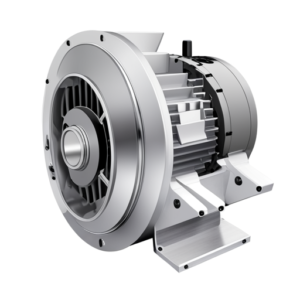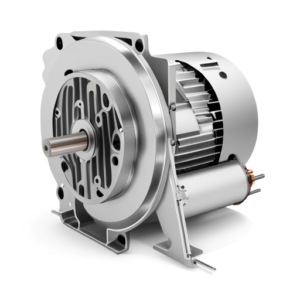Blower motors are indispensable components in HVAC systems, industrial machinery, and even automobiles. But how much do you really know about them? This article dives deep into the world of blower motors, offering insights that are valuable for electrical engineers, electricians, and homeowners alike.
Introduction to Blower Motors
Blower motors are electric motors that drive air or gas flow in various applications. From heating and cooling systems in homes to complex industrial processes, these motors ensure that airflow is managed efficiently. Their primary purpose is to circulate air to achieve desired temperature control, air quality, and ventilation.
Types of Blower Motors
When it comes to blower motors, there are several types to consider. Each type has its own set of features and applications. Here are the most common ones:
AC Motors
Alternating Current (AC) motors are the most traditional type of blower motor. They are simple in design and generally less expensive. However, they offer limited control over speed and efficiency.
DC Motors
Direct Current (DC) motors offer better speed control compared to AC motors. They are often used in applications requiring precise airflow regulation. These motors are generally more efficient and quieter but can be more costly.
ECM Motors
Electronically Commutated Motors (ECM) are the latest innovation in blower motor technology. They combine the best features of AC and DC motors, offering high efficiency, variable speed control, and low noise levels. ECM motors are particularly popular in modern HVAC systems due to their superior performance and energy savings.
The Importance of Blower Motors
Blower motors play a critical role in various systems:
- HVAC Systems: In heating, ventilation, and air conditioning systems, blower motors circulate air to maintain indoor climate conditions.
- Industrial Machinery: These motors are essential for cooling machinery and ensuring that industrial processes run smoothly and safely.
- Automotive Applications: In vehicles, blower motors are crucial for the operation of heating and air conditioning systems, ensuring passenger comfort.
Common Issues and Solutions
Blower motors, like any mechanical component, can experience problems. Here are some common issues and how to troubleshoot them:
Overheating
Cause: Overheating can occur due to poor ventilation, clogged filters, or overloading.
Solution: Ensure proper airflow around the motor, clean or replace filters regularly, and avoid operating the motor beyond its capacity.
Noise
Cause: Noise is often a result of loose components, worn bearings, or imbalanced fans.
Solution: Tighten any loose parts, lubricate or replace bearings, and balance the fan blades.
Inefficiency
Cause: Inefficiency can stem from electrical issues or mechanical wear.
Solution: Check the electrical connections and ensure they are secure. Inspect for any signs of mechanical wear and replace worn parts as needed.
Energy Efficiency and Blower Motors
Energy efficiency is a significant concern in today’s eco-conscious world. Efficient blower motors not only reduce energy consumption but also lower operational costs. ECM motors, in particular, stand out for their high efficiency and ability to adapt to varying load conditions, making them an excellent choice for reducing energy usage.
Maintenance Best Practices
To ensure your blower motor operates at its best, regular maintenance is essential. Here are some best practices:
- Routine Inspections: Regularly inspect the motor and its components for any signs of wear or damage.
- Cleaning: Keep the motor and surrounding area clean to prevent dust and debris buildup.
- Lubrication: Lubricate bearings and other moving parts as recommended by the manufacturer.
- Filter Replacement: Replace air filters regularly to ensure optimal airflow and prevent strain on the motor.
Upgrading to ECM Motors
Are you considering an upgrade? ECM motors offer numerous benefits over traditional AC or DC motors:
- Higher Efficiency: ECM motors are typically 30-50% more efficient than standard motors.
- Variable Speed Control: These motors can adjust their speed based on the system’s requirements, ensuring optimal performance.
- Quiet Operation: ECM motors operate more quietly, enhancing overall comfort.
- Longer Lifespan: Due to their efficient operation and advanced technology, ECM motors tend to have a longer lifespan.
Future Trends in Blower Motor Technology
The future of blower motor technology is exciting, with advancements focusing on increased efficiency, smart technology integration, and sustainability. Here are some trends to watch out for:
- Smart Motors: Integration with IoT (Internet of Things) for real-time monitoring and control.
- Environmentally Friendly Designs: Use of eco-friendly materials and designs that reduce carbon footprint.
- Advanced Diagnostics: Enhanced diagnostic features that predict potential failures and optimize maintenance schedules.
Conclusion
Blower motors are vital components that ensure the efficient operation of various systems. Understanding the different types of blower motors, their importance, common issues, and maintenance best practices can significantly enhance their performance and lifespan. Upgrading to ECM motors offers numerous benefits, including improved efficiency and quieter operation.
Ready to make the switch or need more information? Learn more and explore our range of ECM motors to find the perfect fit for your needs.
By providing comprehensive information on the different aspects of blower motors, this blog post aims to serve as a valuable resource for electrical engineers, electricians, and homeowners. Whether you’re troubleshooting an existing motor or considering an upgrade, understanding these key points will help you make informed decisions.
FAQs (Frequently Asked Questions)
- Can I replace a blower motor myself, or should I hire a professional?: It depends on your level of expertise. While some may be comfortable with DIY replacements, it’s often safer and more efficient to hire a professional, especially for complex systems.
- What are the signs that indicate a malfunctioning blower motor?: Common signs include reduced airflow, unusual noises, and inconsistent temperature regulation.
- Are variable-speed blower motors worth the investment?: Yes, they can be worth it for their energy-saving benefits and improved comfort levels.
- How often should I schedule maintenance for my blower motor?: It’s recommended to schedule maintenance at least once a year to ensure optimal performance.
- Can a noisy blower motor be repaired, or does it need replacement?: It depends on the cause of the noise. Some issues can be repaired, while others may require replacement of certain components or the entire motor.


